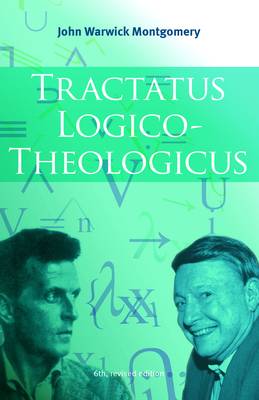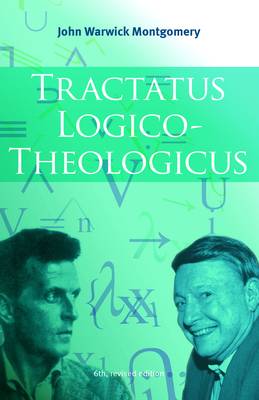
- Afhalen na 1 uur in een winkel met voorraad
- Gratis thuislevering in België vanaf € 30
- Ruim aanbod met 7 miljoen producten
- Afhalen na 1 uur in een winkel met voorraad
- Gratis thuislevering in België vanaf € 30
- Ruim aanbod met 7 miljoen producten
Zoeken
Omschrijving
Professor Montgomery, while a student at Cornell University, had contact with Norman Malcolm, disciple and close friend of Wittgenstein, and cut his teeth in formal logic under the instruction of Max Black, allegedly one of the very few to have understood on first reading Russell and Whitehead's argumentation in their Principia Mathematica. Montgomery's university teaching career in history, law, literature, and theology, combined with that philosophical background, led to the production of the present work, which offers a comprehensive apologetic for classical Christianity. Consisting of over 1,800 propositions in logical sequence, Montgomery's Tractatus is accompanied by de-tailed scripture, name, and subject indexes. The coverage is remarkable, embracing logic, literature, history, myth, science, philosophy, jurisprudence, political theory, and theology - interspersed throughout with the wit and rapier thrusts of a barrister at home in adversarial contexts. Wittgenstein's Tractatus, having demonstrated the limits of any non-transcendental attempt to understand the world, ended with the proposition, ""Of that which one cannot speak, one must remain silent."" Montgomery, after setting forth in depth the overwhelming case for the very transcendental revelation for which Wittgenstein longed but never found, concludes: ""Whereof one can speak, thereof one must not be silent."" The Tractatus Logico-Theologicus purports to break new ground apologetically, as did the Tractatus Logico-Philosophicus epistemologically. It should be of particular interest to philosophers of religion, theologians, pastors, historians of ideas, and to everyone seeking solid answers for the ultimate questions which plague all of us at one time or another, especially during what St John of the Cross labeled ""the dark night of the soul.""
Specificaties
Betrokkenen
- Auteur(s):
- Uitgeverij:
Inhoud
- Aantal bladzijden:
- 242
- Taal:
- Engels
- Reeks:
- Reeksnummer:
- nr. 1
Eigenschappen
- Productcode (EAN):
- 9781666782707
- Verschijningsdatum:
- 27/06/2023
- Uitvoering:
- Paperback
- Formaat:
- Trade paperback (VS)
- Afmetingen:
- 152 mm x 229 mm
- Gewicht:
- 326 g

Alleen bij Standaard Boekhandel
+ 88 punten op je klantenkaart van Standaard Boekhandel
Beoordelingen
We publiceren alleen reviews die voldoen aan de voorwaarden voor reviews. Bekijk onze voorwaarden voor reviews.











